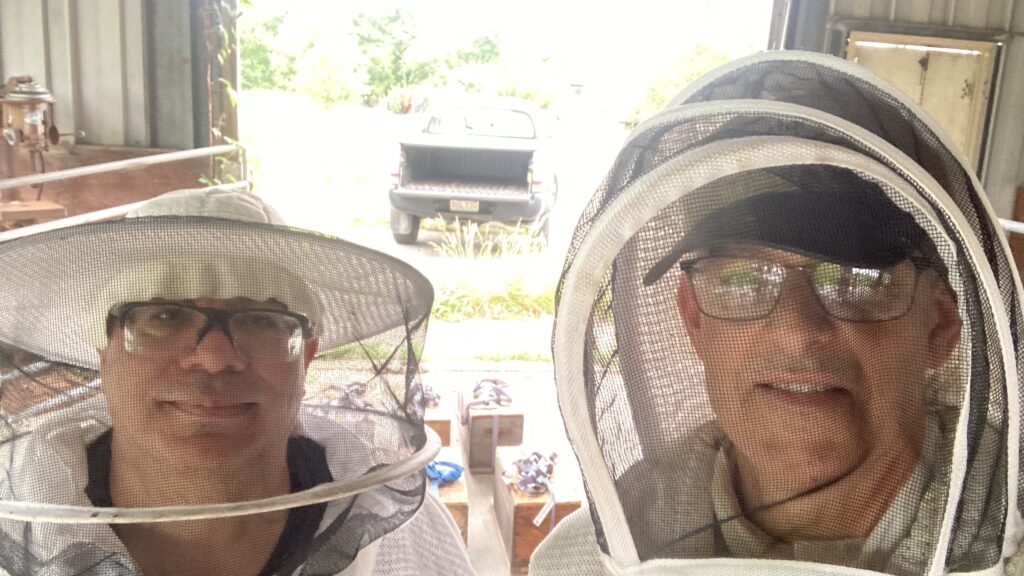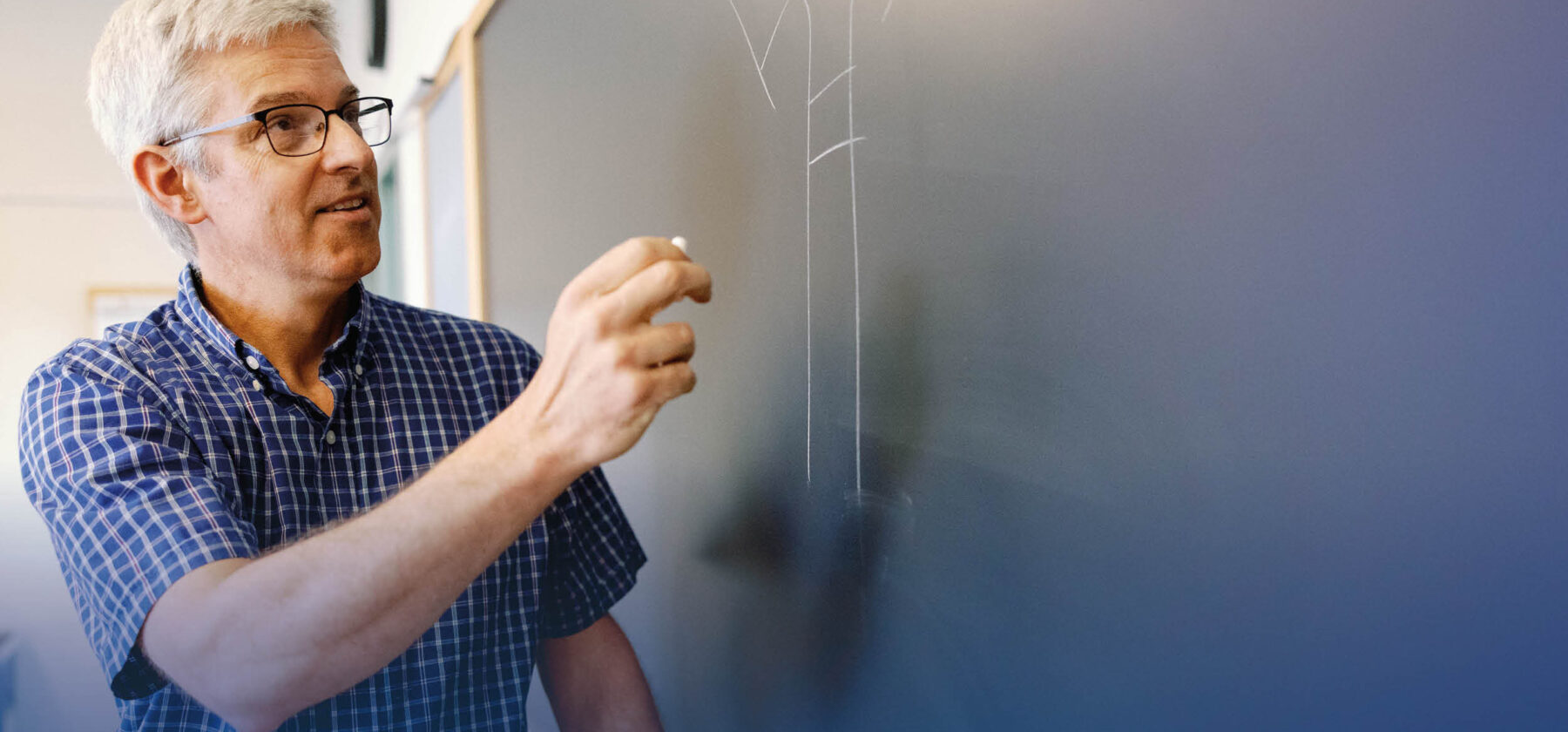ECBA Awards $10,000 to Dr. Craig Story’s Collaborative Research with USDA
With a $10,000 grant awarded by the Essex County Beekeepers’ Association (ECBA), Dr. Craig Story (biology) will focus the next two years on research to better understand the connection between a bee’s diet and its ability to fight viral infections. The study, done in collaboration with Dr. Miguel Corona of the United States Department of Agriculture (USDA) Bee Research Laboratory, is part of a research effort to help honeybees across the nation. Gordon students will also have the chance to participate in this important study.
What’s the Buzz?

Whether you see them or not, honeybees play a central role in creating many foods you love to eat. If their populations dwindle, so will our food supply, which is why it’s essential to help their survival. Each year beekeepers transport colonies of thousands of bees across the country for the peak weeks of growth for crops like blueberries and strawberries to ensure the best quality. But given their short lifespan and small size, honey bees are easily susceptible to pesticides and viruses—and if they get sick, their ecosystem, as well as our own, suffers.
Fortunately, beekeepers may be able to help bees limit infections, or “viral loads,” by feeding them specific diets during the early spring and fall, when colonies benefit from supplemental feeding. Story’s research will test different diets to see which components best strengthen honeybee health and contribute to viral resistance.
“This research is important because the viral infection of honeybee colonies continues to be a serious problem, leading to colony loss in overwintered colonies,” Story says. The Environmental Protection Agency notes that the number of hives that do not survive the winter months—the overall indicator for bee health—has maintained an average of about 28.7 percent since 2006-2007 but dropped to 23.1 percent for the 2014-2015 winter and is dropping still. “Learning more about factors that influence viral load in the colony could be not only of interest from a purely scientific viewpoint, but it could also lead to practical and easily implemented changes in recommended seasonal feeding practices.”
Researching Bee Health

Story has completed previous studies on bees and their diseases with ECBA grants, the latest of which was recently published in the Journal of Apicultural Research. But this study is part of a larger project run by Corona, one of several notable bee researchers at the USDA bee lab. In its entirety the study will examine the diets of bees in different environments across the globe, including the North Shore.
Story joined this research due to his passion for bees, and he applied for another grant from ECBA to help cover the costs of his research. The ECBA is a leading organization in New England for promoting bee research and education, with connections across the country. Their annual exhibit at the local Topsfield Fair is ranked the largest honey show in North America, and Story has helped the exhibit in the past. Story has also worked with the ECBA on other projects and received another grant from them in 2019.
In late May Story drove 10 colonies, each with thousands of bees, from Corona’s apiary in Maryland up to the North Shore. Due to the number of visitors to Gordon’s campus, the bee colonies are housed in a more secluded, off-campus location, but some bees will be safely transported in custom cages to an environmental chamber in one of the labs at the Ken Olsen Science Center. There, Story will feed the bees different diets. At different times during the experiment, he will use a PCR test, like the familiar COVID-19 tests, to measure differences in gene expression in the bees and their virus levels.
To Gordon and Bee-Yond
Over the next two years, Story plans to use part of the grant to pay Gordon students to perform research tasks: feeding the bees, monitoring their health and ensuring their environment is stable. He will teach students key molecular biology skills by analyzing the gene expression and viral load of the bees with PCR testing in the lab.
Story often incorporates his research into his upper-level classes. Once he has sufficient data from a project, students can work with it as part of their labs. “This bee research will train students in biochemistry and immunology to enter molecular biology fields, which have a very strong presence in Boston and the North Shore,” he says. “With these biotechnology skills, they will be well-prepared to enter the workforce.”

While most of the bees will be off-campus, Story maintains an active observation hive on the third floor of the Ken Olsen Science Center, where he enjoys studying the creatures that help our environment grow. “Many people don’t know that bees are a fully domesticated species. They’re…an indicator of the overall health of ecosystems…I see effects in my own yard of their work; the fruit trees are getting well-pollinated because I have bees…God’s creatures have a role to play in the ecosystem, and I hope this research helps educate people on how to help honeybees and care for our ecosystems.”
 The Bell
The Bell